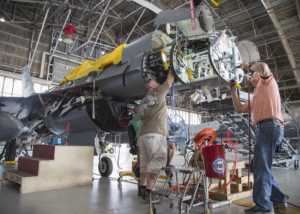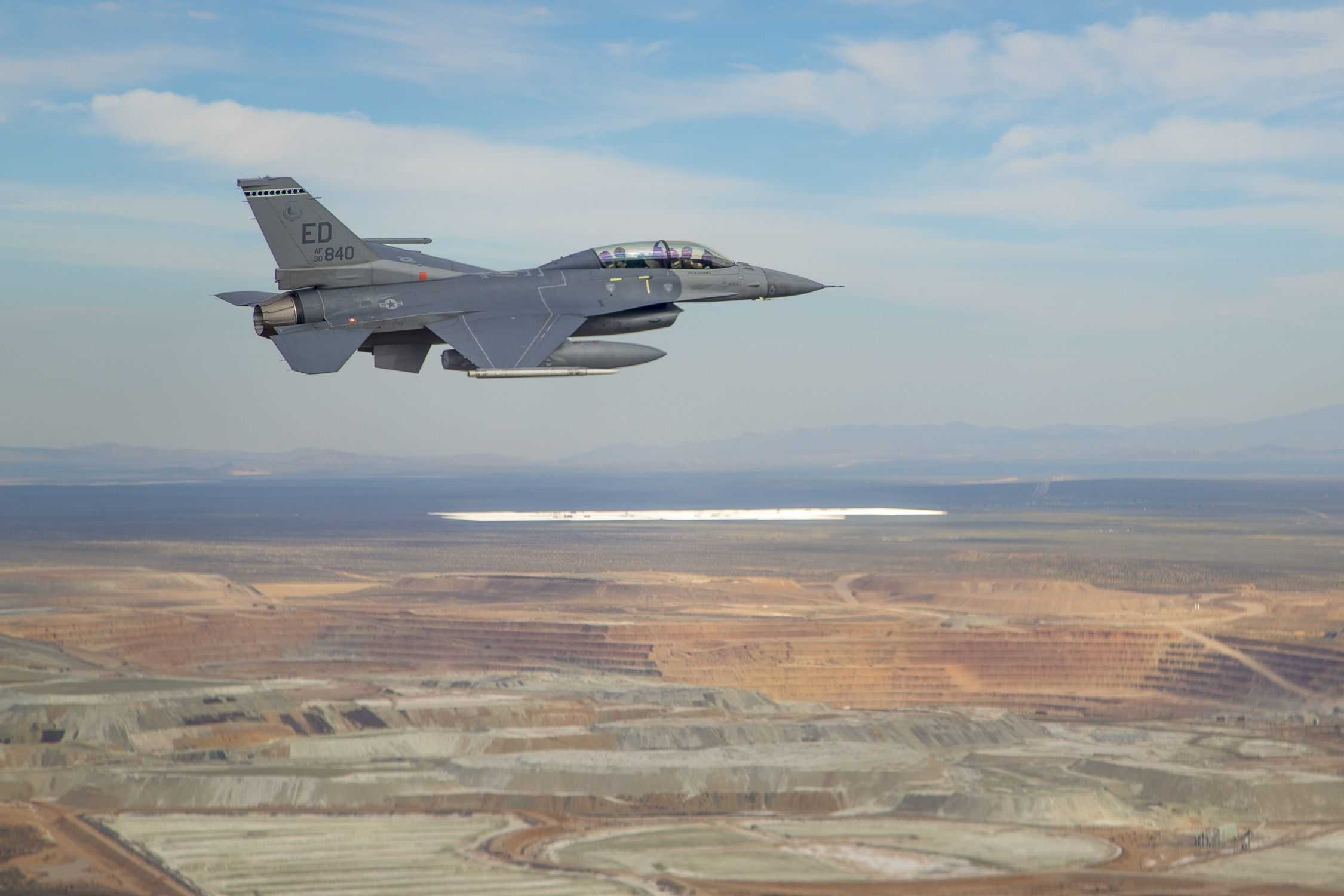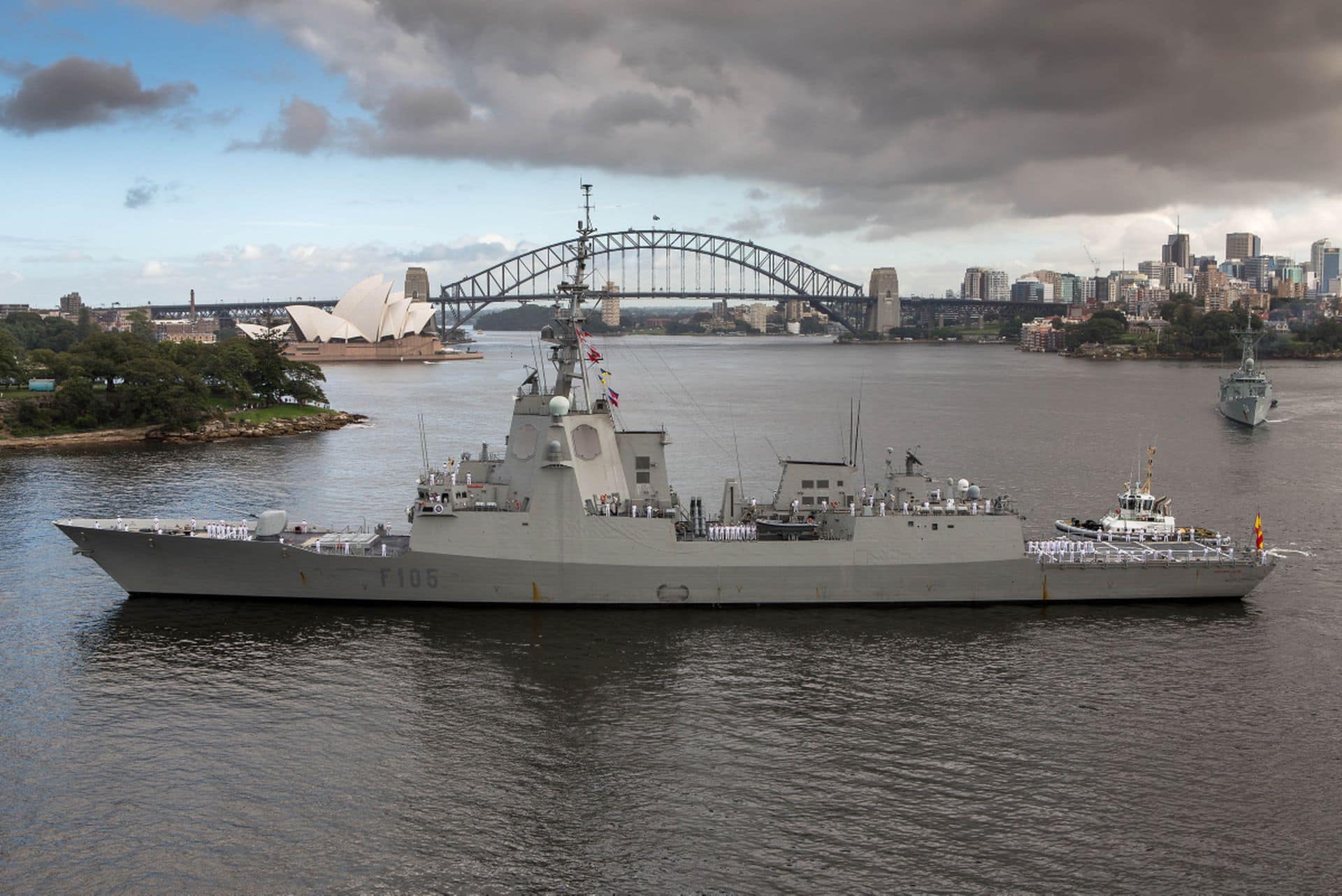The 416th Flight Test Squadron continually conducts developmental testing to enhance the warfighting capabilities of the F-16 Fighting Falcon. One focus of the F-16 testers here is the integration and testing of a new radar as part of the F-16 Radar Modernization Program.
According to its manufacturer, Northrop Grumman, the APG-83 Scalable Agile Beam Radar is a fifth-generation radar that is an Active Electronically Scanned Array fire control radar. It is intended to replace currently used APG-66 and APG-68 radars and provide the F-16 with advanced capabilities similar to fifth-generation fighters like the F-22 Raptor and F-35 Lightning II. It also has the ability to operate in dense electronic environments, simultaneous multi-mode operations and enhanced system availability through increased reliability, maintainability and supportability.
The APG-83 is designed to be installed without making any major modifications to the jet.
“The APG-83 will be a form, fit and function modification that will operate within existing space, power and cooling capabilities of the platform,” said Lt. Col. Chris Keithley, 416th FLTS commander.

The APG-83 could satisfy a need for F-16 users to counter increasingly sophisticated and technological threats with increased bandwidth that would allow the F-16 to detect, track and identify greater numbers of targets faster, and at greater distances.
“With the modernization comes increased capabilities,” said Michael Powell, 416 FLTS, project lead. “It is a more modern and stable radar.”
Powell added the F-16 RMP at the 416th FLTS is ongoing with several ground and flight tests performed with the APG-83 in the past two years. Data collected will be used by the Air Force to determine if the radar can be implemented operationally in the future.
The F-16A first flew in December 1976 with the first operational F-16A delivered to the Air Force in January 1979. Since then, improvements have led to the F-16C and F-16D, which are the current single- and two-seat versions. All active U.S. Air Force units and Air National Guard and Air Force Reserve units have converted to the F-16C/D, according to the Air Force.
Since 9/11, the F-16 has been a major component of the combat forces committed to the War on Terrorism flying thousands of sorties.
The F-16 is also flown by several partner nations around the world.











